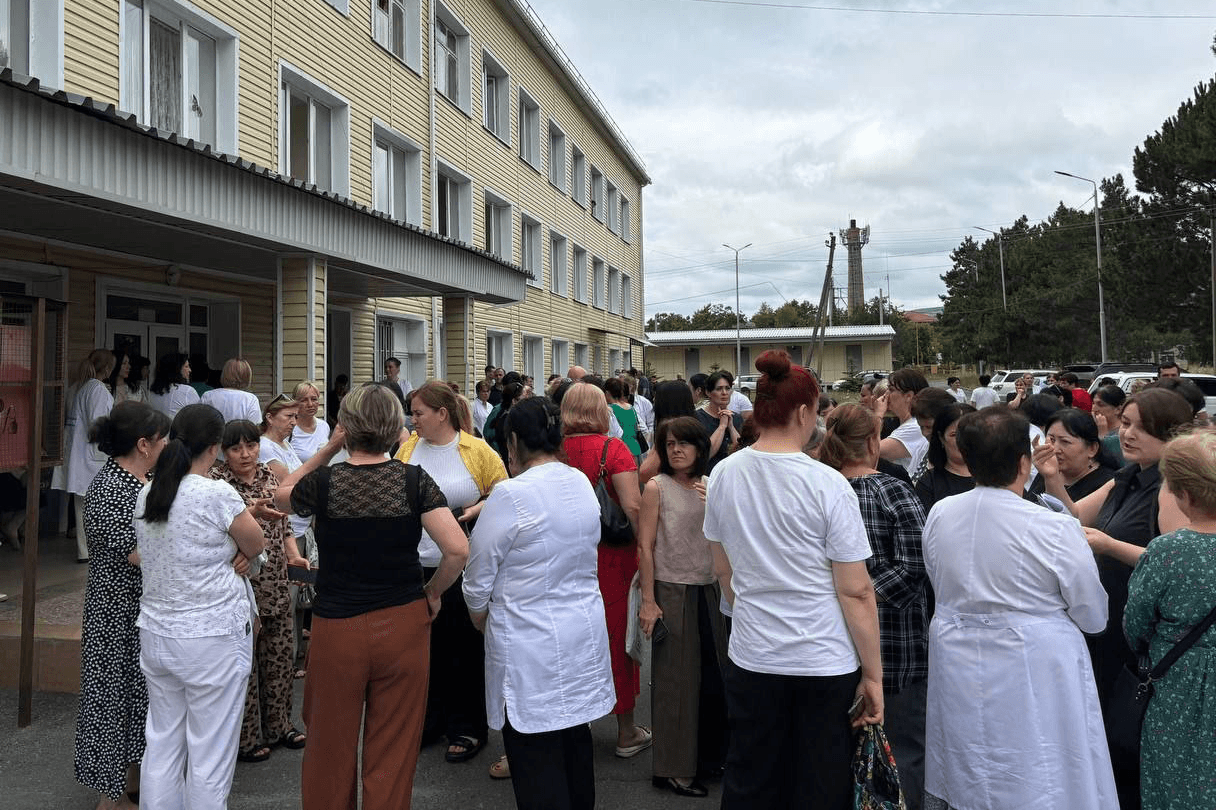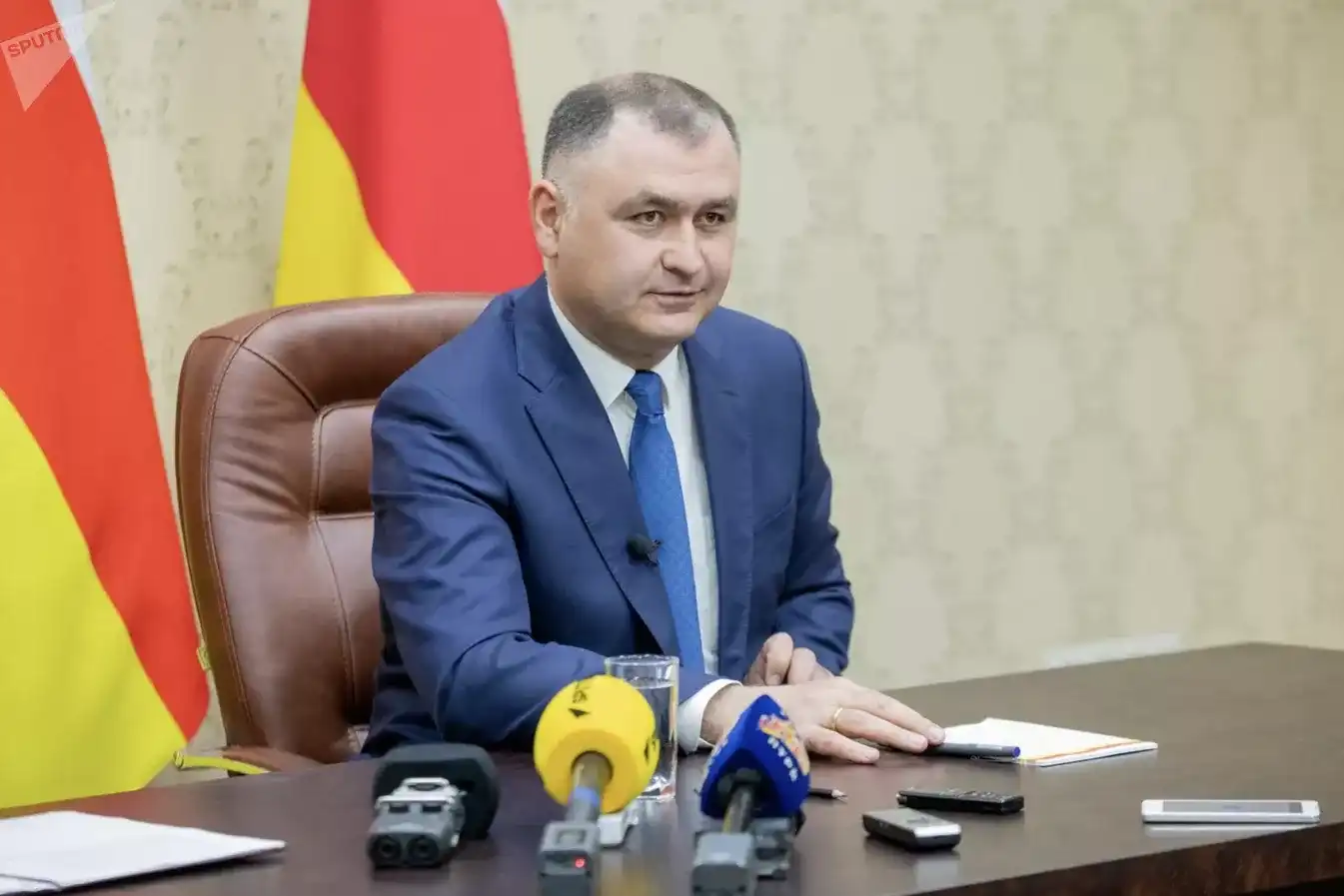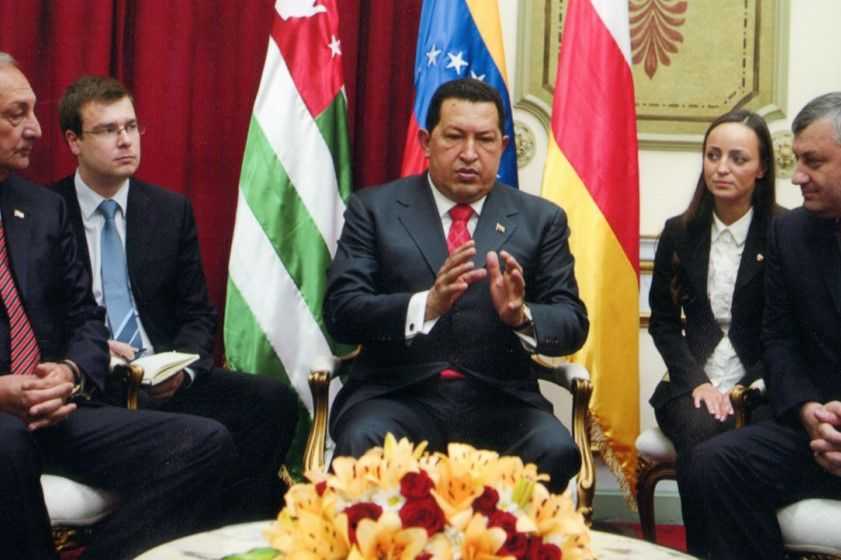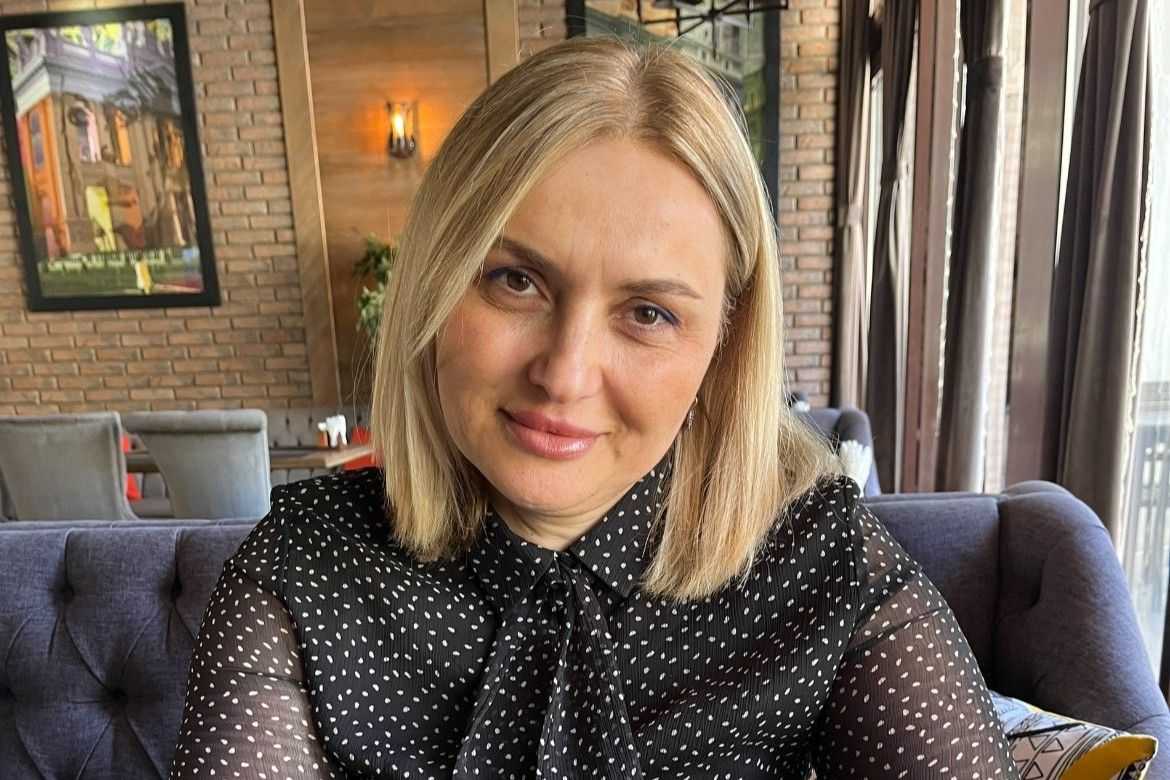
Mid-level medical staff at the Republican Multidisciplinary Medical Centre (RMMC) in the capital of South Ossetia have held a spontaneous protest, demanding a revision of the current pay indexation system.
According to the nurses, as cited by the Russian independent media outlet Caucasian Knot, recent pay increases introduced at healthcare facilities in the region affected only senior and junior staff, while mid-level employees were left out. Protesters said that as a result of the indexation, salaries of orderlies and nurses had effectively equalised, despite the difference in responsibilities.
One of the protesters on Saturday, a paediatric hospital nurse only identified as Irina, said that the refusal to raise their pay had been explained by an alleged overstaffing issue: ‘They say the law allows for 500 nurses to be employed in the republic, but we have 800. So they won’t raise our salaries unless they lay off 300 of us’.
According to Irina, nurses currently earn between ₽25,000 ($310) and ₽30,000 ($380) a month. Their most recent raise amounted to just ₽800 ($10).
‘It’s frustratingly unfair when those in lower positions earn more than me, even though I work just as hard and carry more responsibility,’ she told Caucasian Knot.
Members of the opposition party United Ossetia, led by Atsamaz Bibilov, were the first to approach the protesters, along with the head of the parliamentary committee on social policy and healthcare, Aleksandr Pliev. Later, South Ossetian President Alan Gagloev arrived at the scene.
According to several participants, Gagloev began the conversation with reprimands.
‘He asked each of us why we were outside and not at our workplace. He said we didn’t know anything and were stirring up trouble,’ RMMC nurse Fatima said.
She added that tensions had since developed within the staff — with some employees accusing the protesters of being ‘hostile to orderlies’.
‘We’re not against them — let them earn ₽30,000, ₽40,000 ($500), even ₽50,000 ($630). We just want our pay increased too’, she said.
According to the Telegram channel Sapa Tskhinval, officials reprimanded a correspondent from the outlet for attempting to report on the protest. The president’s press secretary and security officers reportedly told them that unaccredited media outlets were not allowed to film the head of state.
Following a short discussion outside, Gagloev held a closed-door meeting in the RMMC conference hall with some of the nurses and the Minister of Labour and Social Protection, Oleg Gagloev (no direct relation). The minister said that wage funds were allocated by Russia each year and that local authorities did not determine the distribution. However, he was unable to explain why the pay indexation had excluded mid-level staff.
After the meeting, protesters were informed that the government would try to resolve the issue by the end of the following week.
This is the first public strike in South Ossetia’s healthcare system in recent years. Salaries for healthcare workers in the region have traditionally been low.
According to official data, wages for public sector employees in South Ossetia are funded through Russian federal transfers as part of a programme to support the region’s socio-economic development. In 2025, over 85% of South Ossetia’s budget revenue is expected to come from Russian subsidies.
The RMMC’s management has not issued an official statement nor has South Ossetia’s Health Ministry commented on the situation. There has also been no reaction from Russian authorities regarding the strike at a federally funded institution.
As of the time of publication, there have been no reports of disciplinary action against the participants in the protest.
For ease of reading, we choose not to use qualifiers such as ‘de facto’, ‘unrecognised’, or ‘partially recognised’ when discussing institutions or political positions within Abkhazia, Nagorno-Karabakh, and South Ossetia. This does not imply a position on their status.











